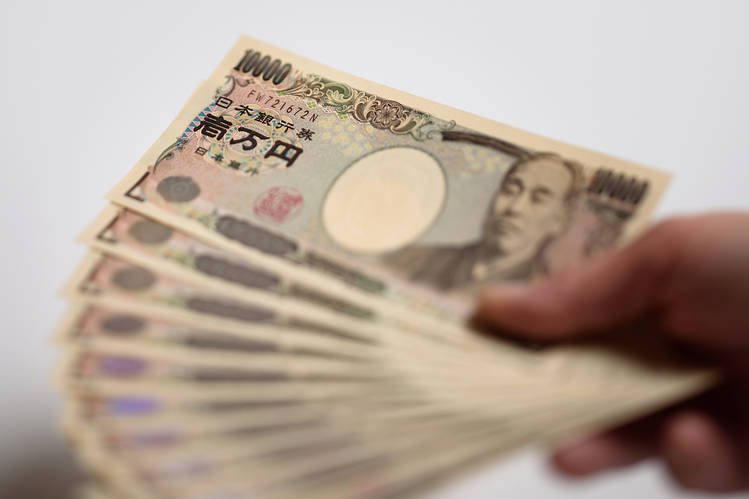Battered yen faces new ball game, more losses after Trump win

TOKYO : The Japanese yen, jolted in a 750-plus point range against the dollar in the week since Donald Trump’s presidential win, could fall back towards a February low of 115 yen on prospects of rapid U.S. interest rate increases.The dollar marked a five-month high above 108.500 yen on Monday, having sunk to almost 101 just a week ago as financial markets were gripped by turmoil in the wake of Trump’s stunning upset. It was trading at 107.950 yen on Tuesday afternoon.
The yen’s tumble has defied all expectations given a Trump presidency was expected to trigger a rush to safe-havens such as the Japanese currency and gold as the freewheeling former reality TV star’s stance on trade, foreign policy and immigration had spooked policy makers and investors around the world.
However, in a surprising U-turn the dollar has surged as markets have gravitated to the view that Trump would usher in reflationary policies under a big fiscal spending plan, sending U.S. Treasury yields soaring.
“With the possibility of reflationary policies being enacted, the market is bracing for a new bull phase under a different set of rules,” said Koji Fukaya, president of FPG Securities in Tokyo.
The ‘different rules’ include the prospect of the Federal Reserve hiking rates more frequently than anticipated next year to keep up with an economy humming on additional fiscal stimulus.
“The Fed was only seen hiking once at most in 2017, but now expectations could arise for two and even three hikes next year,” wrote Yunosuke Ikeda, senior FX strategist at Nomura Securities.
“A 115-120 dollar/yen range comes into view based on an estimate that each rate hike could push up the pair by 4 yen.”
Another key factor in the yen’s rather bearish view is the emergence of a big chasm in U.S.-Japanese interest rate spread that has increased the dollar’s relative attraction.
The 10-year Treasury note yield has climbed roughly 40 basis points since the elections, hitting a 10-month high of 2.3 percent.
As a result the 10-year U.S.-Japanese yield is at its widest since January 2014, and the Bank of Japan has done its own part in the yawning gap as it anchors the Japanese benchmark yield at around zero percent under a revamped monetary easing campaign announced in September.
“The biggest post-election game changer is the shift in the bond market. The 10-year Treasury yield has topped 2 percent on the premise that Trump will do the previously unthinkable and spend double the fiscal amount than (Hillary) Clinton,” said Daisuke Karakama, market economist at Mizuho Bank in Tokyo.
The yen also has to contend with indirect pressures from the dollar gaining against other major currencies such as the euro.
Some financial institutions forecast the dollar topping 120 yen in the coming months, amid bullish technical indications such as the pair convincingly topping the 200-day moving average for the first time since December.
Still, others are not so sure of the yen falling that low.
Minoru Uchida, chief currency analyst at the Bank of Tokyo-Mitsubishi UFJ, said the dollar’s strength could be curtailed as Trump may not be able to spend as much as he promises, and as inflation could dim the currency’s appeal.
And then there’s the emerging markets factor. Trump’s win has shaken these markets, with their equities and currencies sliding on the spectre of higher U.S. interest rates siphoning money away.
“The current rise by the dollar could eventually lead to confusion in the emerging markets and ultimately derail the Fed’s rate hike course,” Mizuho Bank’s Karakama said, adding the yen stands to benefit in such a scenario.

